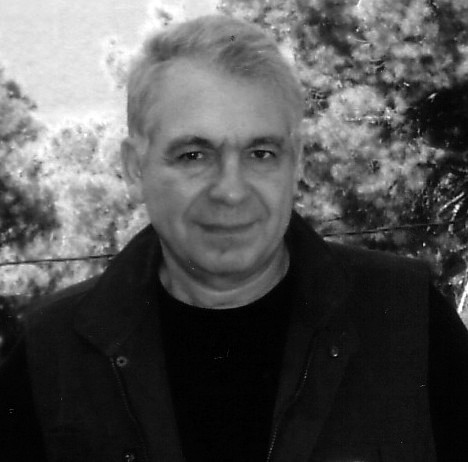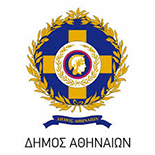| Abstract text: |
Why did you do it
Posted on 6 Ὀκτώβριος 2019 by planodion
There are no witnesses now, to anything
George Seferis
(«Three Secret Poems»)
HELP! Help!
The cry reached their ears in a pleading, almost heartbreaking
scream. Undoubtedly, the one who uttered it was in great danger.
«Help! Help!»
The sound ripped the silence of the night. He looked askance at his
watch: past three-thirty!
His life-partner suddenly jumped out of bed and made for the
window. She put down the blind.
«What are you doing there?»
«Ssh», she whispered to him. «Don’t move and don’t turn on the
lights, either!»
Her shaky voice betrayed her fear.
There was a strip of grass in front of their window; the railings of the
yard and the street had been dark the last two days. The post lamps all
around were out. She even remembered grumbling to him: «What the
hell? Do they save on electricity? Such a resort…in darkness and they
hope to attract tourists?»
«Help! Help!»
The voice was heard closer now.
It was followed by heavy, scurrying footfalls along the street. Then
complete silence fell. In the hall a dim light burned. The young woman
stood quite still between the man, who was half sitting on his side of the
bed, and the window as if she wanted to check his movements. Then she
bent over the baby’s cradle, like a guardian angel, and listened to his
breathing.
«What are you afraid of…like he’s going to barge in here!»
The woman, instead of an answer, covered the baby, who kept on
sleeping calmly, with his small bedcover.
When nothing more was heard, the man approached the window
and put up the blind to its former position. Meanwhile he noticed that
several lights were turned on —too late of course— in the condominium
across the street.
«So you were scared to death, weren’t you?” he asked her. “You
even put the blind down…why did you do it?»
He so much wanted to add that normally they all should have run to
see if they could help in something, but he could see she was so
disturbed that he did not dare to.
«You mean you weren’t scared?» she responded incredulously.
* * *
A little way off, at the end of the square there was a small fountain. Each
night a jet of water gushed out of its center in fluctuating intensity,
scattering a kaleidoscope of luminous colors through the use of proper
projectors. Different tourists, couples or families twittered merrily,
taking pictures of themselves, against this scenic setting, standing by or
sitting on the low stone wall of the pool. A few days before he, with his
life-partner and their little one, had posed to be photographed. Today,
since the ungodly hour of dawn, the dead body of a young man had
been floating in the water with outstretched arms and face down.
The first rumors went around that it had to do with someone
involved in drug and contraband trafficking in the area and done in by a
Rumanian belonging to the same gang. However, no necessary evidence
had been found yet, nor the victim’s exact residence. Everybody talked
of a sort of payback between scoundrels of the underworld, where, it is
generally known, none is easily getting away when one is being targeted.
Some argued that the man had been a victim of an unexpected
nocturnal robbery; he might momentarily have gotten away from his
killer’s claws and was chased and killed, in particular he was strangled.
There were so many versions as those (with vivid imagination or not)
who spread them. Some went even so far as to hint to a heinous sexual
crime as the victim had been dazzlingly handsome. The local police had
been faxing and emailing messages to all authorities in charge (both
local and foreign), but what more could a police service be expected to
do when it is understaffed and situated in the far end of this isolated
tourist area?
The crucial question that was originally asked was whether the
incident finally concerned the person who had called for help the night
before. There was no doubt about this; for there were many – neighbors
and others – who though they had not seen either the killer or the
victim, they had heard, however, (distantly as in a dream) their voices
and their scuttle, and they could precisely determine the route they had
moved along, through narrow and deserted alleys until they reached the
fountain – their destination. Because of such detailed hearsay evidence,
the possibility of a terrorist attack by a lonely wolf – since no relevant
cry Allahu akbar! was heard – was excluded. To the perplexity exhibited
by the police chief before the fact that there were no eye-witnesses (not
even one! Only the ones that had heard the shout from a distance) who
could have experienced the incident closely someone had given his own
version:
«I was about to get into the bathroom when I heard the shouts and
thought of going out to see what was going on but then I was scared…»
He added that once when he happened to encounter (or rather to come
across) a person cut of the same mould as the one they were looking for,
he saw him in the street brandishing a sharp, thirty centimeter long steel
machete… The police officer assumed the man’s answer to be sincere, as
he believed that what the man had felt – something like panic – could
paralyze one’s right thinking and prevent one from taking action;
therefore, he no longer pursued the matter.
* * *
In the same evening, at some moment, the man’s eyes opened by
themselves in his sleep as if they had been scheduled to. He looked at
his watch askance: past three- thirty in the morning!… He slowly got out
of bed and approached to the half-closed window blind. Outside the
street was dark again, since the post lamps were out; deafening silence.
He swallowed nervously as if he was going all out for something and
then funneling his palms around his mouth he shouted at the top of his
voice:
«Help! Help!»
His partner was taken aback by panic.
«What are you doing? Are you out of your mind?»
She had at once bent over her baby’s cradle led by instinct; the child,
startled in fright, began weeping in its sleep.
The man stood in front of her, still and mystifying. The thought that
he had probably managed to be heard by all made him laugh since that
was what he exactly wanted: to disturb everybody by rousing them from
their blissful slumber, to sense them again, even for a few moments – he
thought maliciously – lurking behind the closed blinds of their homes,
penned in their fear.
He waited for the first lights to be turned on across the street and
then went back to bed.
Source: From short stories collection Hypo to kratos tou tromou
(Metaichmio Publishers, Athens, 2018).
Translated by Vassilis Militsis
|







